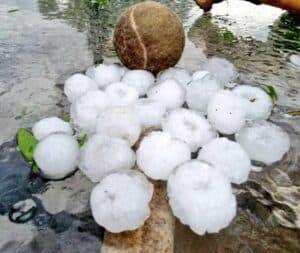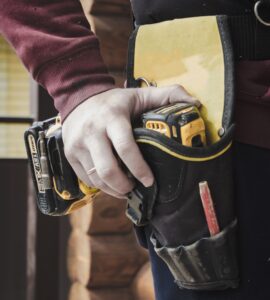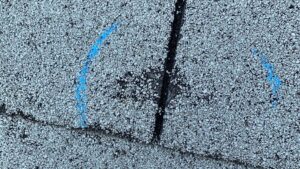For those who live in places prone to regular weather catastrophes, it is always a good idea to double-check the house insurance policy to ensure that the coverage is up to date. There have been cases when policyholders believed they had coverage for particular situations only to discover that the coverage was not available when they needed it. It is usually a good idea to review your insurance policy before storm season to ensure that it will cover you if you are affected by a storm.
How can you be sure you are covered with your insurance policy?
There are a few things to check for if you want to be sure your insurance covers any storm-related property damage concerns. Here are a few to think about: Is there a storm deductible? Do you have flood insurance? Is there adequate coverage overall? Do you have full replacement cost or is there a cap?
Knowing this information ahead of time will help you be prepared and determine if you need to hunt for additional coverage.
Do you have a home inventory list?
Would you be able to recollect anything important in your house if there was a hurricane that caused property damage? Most of the time, you’ll forget one, two, or three items. This is why a home inventory list is essential. If you want to file a claim for storm-related damages, you may utilize the inventory list to construct a list of valued items. Having that record of your possessions might save you a lot of time.
What are common types of damage from a storm?
- roof damage to the home
- window damage
- siding damage
- flooding
- windstorm damage
The storm’s destruction might manifest itself in a variety of ways. Water damage is one of the most prevalent sorts of damage, and many people may experience it if a storm occurs. There is a potential of substantial property damage, therefore it is vital to be prepared, which includes reviewing the insurance policy ahead of time. Flood damage will not be covered under all insurance plans.
Do you have enough coverage if a storm hits?
Most insurance will not cover the entire replacement cost of a house or other property, and in many circumstances, there will be a maximum. There are, nevertheless, methods for finding guaranteed replacement cost insurance. In addition, some plans may provide reimbursement for increases in material prices as a result of shortages after a storm; this is another insurance feature to review if you want to ensure you have well-rounded coverage.
How can you be sure your insurance policy is enough?
Examining your insurance will help you evaluate what coverage you presently have and where you may be lacking. If your policy does not include RCV or replacement cost value, for example, you may be unable to get full reimbursement to replace the item with a new property of the same sort and quality.
Some insurance policies only provide actual cash value (ACV) for your property, which means you may get less money since it factors for depreciation based on how long you have had it. Which kind do you currently have in your policy? You may prefer one over the other for storm coverage; inquiring about this with reference to your policy will help you evaluate whether you want additional coverage.
What is your deductible?
This is one of the most critical aspects of your insurance policy to consider if you ever need to seek and utilize it. Are you going to have to pay any expensive deductibles? The policyholder must pay the deductible out of pocket, and these costs may commonly vary from 2 to 5% on average.
What storm coverage is best?
There are numerous forms of insurance to consider for storms that may cause property damage. Is there a deductible for hurricanes, and do you have flood insurance? Are you protected against windstorm damage? Is there a deductible for storm damage? These are some frequent policy coverage concerns.
Overland Water Coverage On Your Policy
In certain situations, you should also consider overland water coverage insurance, which refers to water that originates from fresh bodies of water such as rivers or lakes. Because this differs from standard flood insurance, if you do not have overland water coverage, you may not have insurance to cover certain sorts of flooding circumstances. Make certain that you do.
Waiting Period For Coverage After a Storm
If there is a storm and you suffer property damage, it is also critical to understand how long you will have to wait before receiving compensation and beginning to repair. This varies depending on the policy for storm insurance, therefore it is crucial to know how long you may have to wait before receiving a required insurance reimbursement.
Can you get any discounts from your insurance policy?
In rare situations, you may be able to get a reduction on your insurance coverage. This may be accomplished by seeking for incentives for fortifying your house. Installing shutters, for example, may result in a premium reduction. There are a few things that homeowners can do to reduce their insurance premiums, and it is worthwhile to inquire about any discounts that may be available for taking efforts to reinforce the property.
You don’t want to discover after the storm that you weren’t insured. Take the time ahead of time to review your insurance and ensure that you will have that coverage when you need it. The nice benefit about planning ahead of time is that you may adjust it if you discover that you need extra coverage. Taking the additional time will help you identify and obtain the coverage you need to create a safety net in the event that a storm causes catastrophic damage to your house.
Common FAQ:
- Ask if there are any exclusions in your policy that you might not be covered for
- What does the process look like to file a claim?
- What efforts should you take to protect your home before a storm hits?
- Does my homeowners insurance cover a flood?
- Does my homeowners insurance cover any type of flooding?
- What are my homeowners insurance coverage options?
- What scenarios are covered under my insurance policy if a storm hits?
- How can I get the best rate?
- Do I have to pay a deductible?
- Is there a waiting period for payout?





